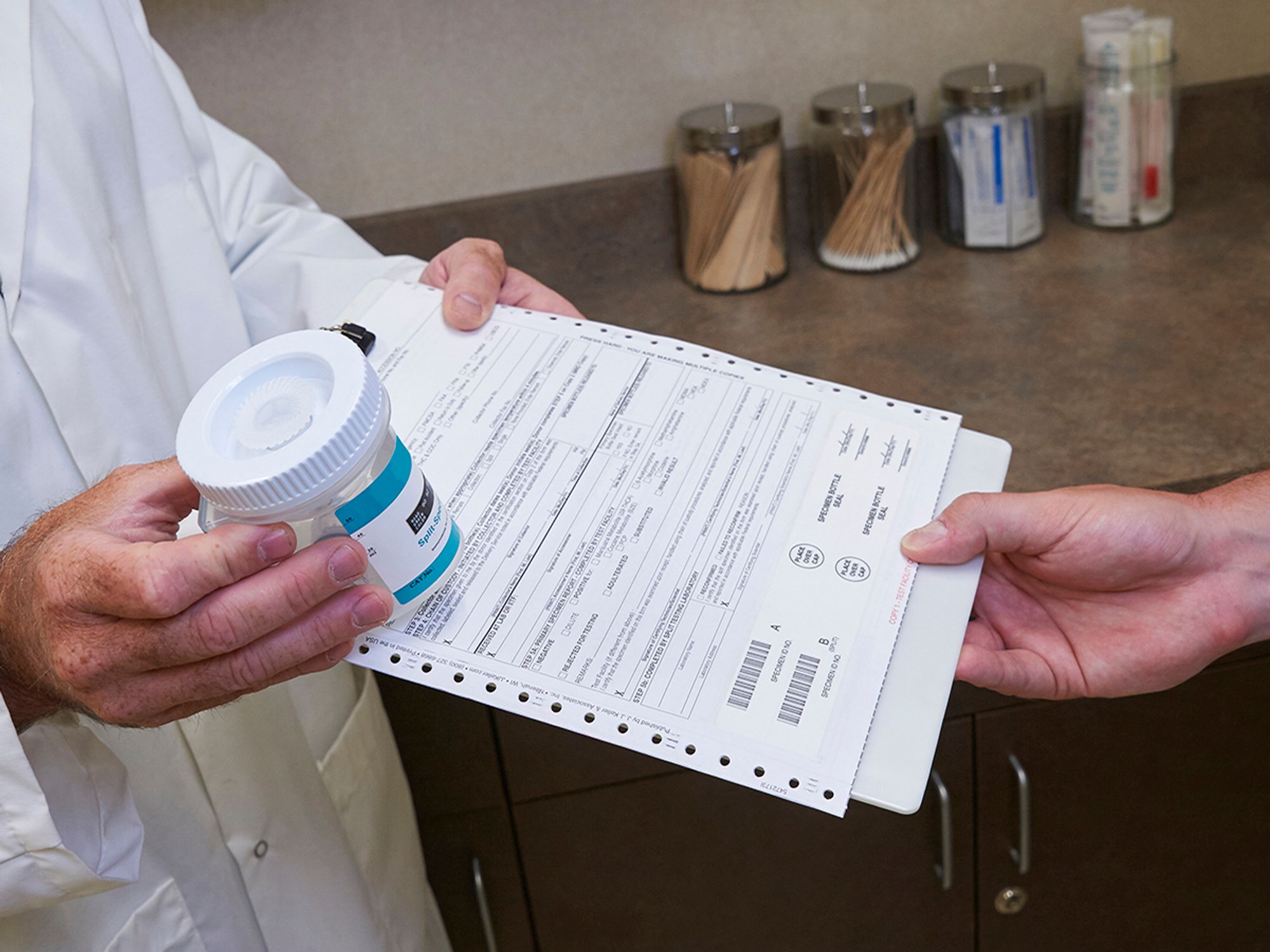Random drug tests

- Consider business needs in addition to federal and state regulations when creating policies on random drug tests.
- State random drug testing guidelines vary.
- State laws may limit random testing to high-risk or safety-sensitive occupations.
Random tests aid employers in identifying employees who are engaging in drug use or alcohol misuse that may have otherwise gone undetected. An employee can expect to be tested at any time, and the uncertainty of when a test will be given means an employee cannot simply abstain for a short period of time in order to pass a test. An employee needs to come to work each day free from the influence of alcohol or illegal drugs or risk the consequences.
There is no requirement to administer random drug or alcohol tests to non-U.S. Department of Transportation (DOT) employees. A company needs to consider state laws when determining whether random tests are allowed. When random testing is allowed, employers may set up a testing program that meets its workplace needs.
In some states, random testing is limited to safety-sensitive positions. These states include California, Connecticut, Maine, Massachusetts, Minnesota, Montana, and New Jersey. In these states, the need to do a drug test because of the safety-sensitive nature of a person’s job must be balanced with the individual’s right to privacy. If an individual’s life or the lives of others are at risk if the individual were impaired by drugs or alcohol, a random test would likely be warranted in the interest of public safety. The details of the state law must be considered, however.
There is no universal list of jobs that are safety-sensitive. Some states that restrict random tests are very specific about which jobs fall under this umbrella, while other states offer more general guidelines.
In Connecticut, for example, a high-risk or safety-sensitive occupation is defined by state law. It includes jobs where an employer does not have the ability to observe an employee’s impairment, and also includes an occupation that:
- Presents a clearly significant life-threatening danger to the employee, fellow employees, or the general public and is performed in a manner or place inherent with or inseparable from such danger; and
- Requires the exercise of discriminating judgment or high degree of care and caution.
Connecticut's labor commissioner maintains a list of occupations designated as high-risk or safety-sensitive. The list includes hundreds of occupations, ranging from advanced climber/trimmer-trainee (for power line clearance) to yardman (working with hazardous waste materials).
Other states are not as specific. In Maine, for example, the law does not define “safety-sensitive.” All drug testing policies must be approved by the state, however, and an employer wishing to conduct random tests must describe in its policy why a job is deemed to be safety-sensitive.
Because of differences in the way states address random testing, employers in states where random testing is regulated should look to their state laws before setting up a random testing pool for employees.
